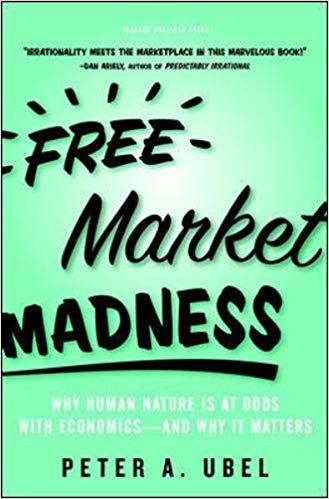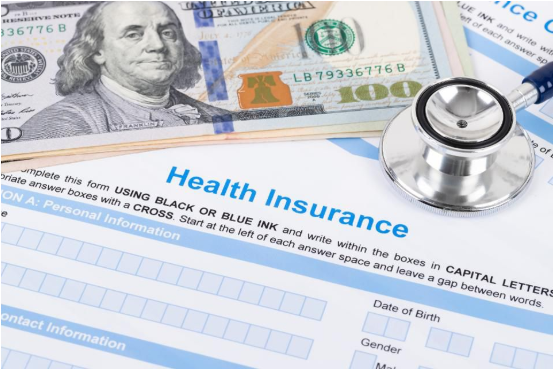Happiness doesn’t always come easily. Some people seem naturally happy, like they inherited the right gene or were born into the right circumstances. Many other people struggle to find happiness. Perhaps even more people hope to become happier than they already are. But what kind of plan should people follow if they are hoping to become happier? Or will any kind of plan merely make it harder to thrive?
It might sound silly to plan for happiness. But many of the decisions we make in life are based on our desire for happiness. Some decisions are based on the desire for immediate emotional pleasures – our choice of desserts after a good meal, for example. Other choices are based on the desire for long-term happiness, whether that reflects primarily emotional well-being (the amount of positive versus negative mood we experience) or the pursuit of meaning in life (such as the sense of satisfaction with one’s accomplishments).
(To read the rest of this article, please visit Forbes).
Behavioral Economic Interventions – It’s Not a Choice Between Nudges and Shoves

The field of behavioral economics has brought attention to promising ways of motivating people to make better life choices. Many behavioral economic-inspired interventions are relatively hands off — they nudge people to make wiser decisions without in any way restricting their choices. The idea of nudges was made justifiably popular by Cass Sunstein and Dick Thaler in their best-selling book and has inspired governments around the world to create nudge units.
I’m a huge fan of nudging. But I also don’t think that, when it comes to shaping people’s behavior, we should limit ourselves to nudges.
(To read the rest of the article, please visit Forbes).
High Healthcare Costs — Are Insurance Premiums a Cause or an Effect?
In 2010, the state of Rhode Island decided to tackle high healthcare costs. It did so by requiring insurers to meet affordability standards. The plan worked, but not for the reasons you probably suspect.
Let’s start with what Rhode Island’s standards look like. It required several things of insurers:
- Premium caps – with annual inflation equal to the Medicare price index + 1%
- Transition away from fee for service – to value-based payment and other trendy reimbursement models
- Increase spending in primary care – with a 1% bump each year
Now let’s see what that meant for healthcare spending.
(To read the rest of the article, please visit Forbes.)
Death by Poison – A New American Epidemic
I’ll get right to the dismal data: Americans are dying from poison at an alarming rate. In 2005, death by poison in the U.S. occurred in about 11 of every 100,000 people over age 15. By 2016, that number had more than doubled, to 24.
Any guesses at what could explain this horrific statistic?
(To read the rest of the article, please visit Forbes.)
The Most Expensive Medicare Patients Aren’t Who You Think
Over half of Medicare spending is concentrated in 10% of patients. With Medicare expenditures rising at an unsustainable clip, reigning in the costs of those patients is key to controlling healthcare spending.
So who are those patients and what expenses are they racking up?
(To read the rest of the article, please visit Forbes.)
Angry Your Doctor Won’t Tell You What That Test Costs? You Should Be!
Steve B. wasn’t going to be fooled twice. He’d recently seen an ear, nose, and throat specialist for a “tickle in the throat” that wouldn’t go away. He’d forked over a co-pay at check-in, but then the doctor said he needed “to put a scope down there” and check his throat. He later received a bill for $250, reduced by his insurance company to “only $190.”
He was irate: “If my doctor would have told me: ‘Steve, I think we should scope you, but that is a $250 service that isn’t part of the office visit. I don’t know what your end cost will be,’ I could have made an informed decision… I didn’t get that option.”
So a few weeks later when he was seeing an allergist, Steve made sure to ask whether his insurance company would cover the cost of allergy testing. The doctor replied “I never heard anyone complain it; it’s something we do a lot.” Steve agreed to the test and (you know where this true story is heading) received a bill in the mail requiring him to pay $800.
(To read the rest of the article, please visit Forbes).
Free Markets – Madness or Miraculous?
Recently, I got an incredibly nice email from a complete stranger. It began like this:
“I am an Economics teacher in England and have just finished reading your wonderful book ‘Free Market Madness’.
When you write a book that only 5 people read, it is nice that at least one person thinks it is wonderful. Anyway, the email continued:
“I know I am about 9 years behind the curve with this one, especially as I am also a great proponent of the ideas advanced by behavioural economists. Your book was referenced in Ha-Joong Chang’s great book ’23 Things They Don’t Tell You About Capitalism’ and I found it on Amazon with an American bookseller.”
Holy crap—it has been nine years?!?
“Given one of the themes of your book, how consumers can be misled by corporations, it is ironic that Amazon has connected me (a consumer who wanted your book) with a buyer half way around the world (who wanted to sell your book). I think I am also sufficiently savvy to be aware of how the algorithms used by Amazon also attempt to get me to buy other stuff.”
Wow—a “buyer half way around the world?” Does that mean he bought a USED copy? Oh well, at least I have these words as consolation:
“From our perspective in England it is reassuring to read work from people like yourself – balanced, informative, well-researched and discursive – given the trends we witness with the rise of populist and extremist support both in the US, our own country and across the world generally. I am thoroughly enjoying the work you blog and put online, and once again would like to thank you for enlightening the world with your thoughts and contributions.”
😊
Medicaid: It’s an Antipoverty Program, Stupid!
The first time Bill Clinton ran for president, his campaign chair was determined to keep the famously verbose candidate focused on one topic. So he coined a phrase: “It’s the economy, stupid!”
That phrase comes to mind when I think about our country’s Medicaid programs. Medicaid is a federal/state partnership to provide healthcare coverage to low-income Americans. Most people think of Medicaid as a healthcare program. Which it is, of course, in many ways. It pays for healthcare, after all. But if we think of Medicaid as being only a healthcare program, we overlook its much bigger impact on people’s lives.
Medicaid is an antipoverty program.
(To read the rest of the article, please visit Forbes).
Uncovered: In America, Insurance Doesn’t Guarantee Access and Coverage Doesn’t Mean You’re Covered
Something like one in seven people living in the US have no healthcare insurance. In fact, the number of uninsured people has grown by 7 million since Trump has become president. (Make America Uninsured Again?) These numbers are atrocious. Embarrassing. Shameful, actually, in a country as wealthy as ours. We need to recommit ourselves to guaranteeing people access to affordable healthcare insurance.
And then we need to go one step further and make sure the insurance we offer is robust enough to allow people to receive necessary medical care without going bankrupt. Because currently, even when Americans do have health insurance, they often don’t have access to affordable medical care.
(To read the rest of the article, please visit Forbes).
Angered By High Health Care Spending? Here’s What Maryland Is Doing
US healthcare spending is maddeningly high. As in: fifty percent higher than what other wealthy countries spend, with no evidence we’re getting any bang for all those additional healthcare bucks.
In 2014, the state of Maryland took direct aim at this profitless profligacy, enacting a bold (dare I say European?) approach : it gave hospitals fixed budgets to cover the costs not only of inpatient hospital care, but also outpatient care and emergency room services. It basically told hospitals that, if they wanted to stay in business, they better figure out how to care for patients more efficiently.
(To read the rest of the article, please visit Forbes).









